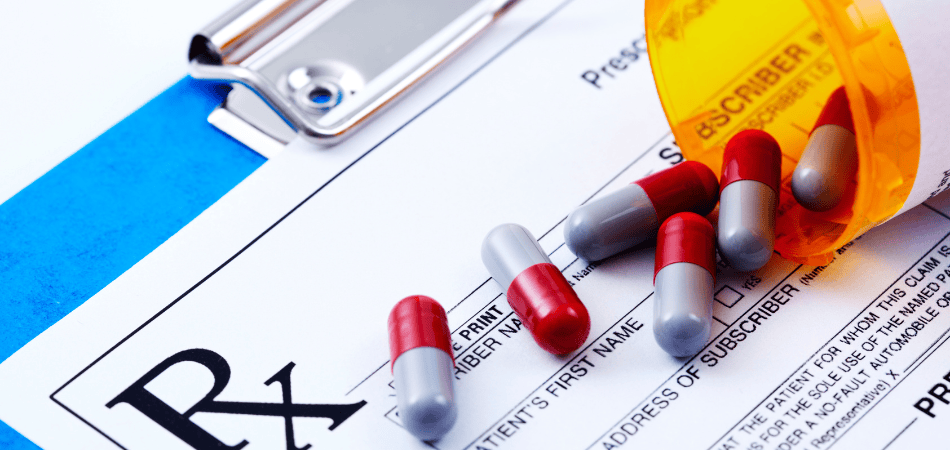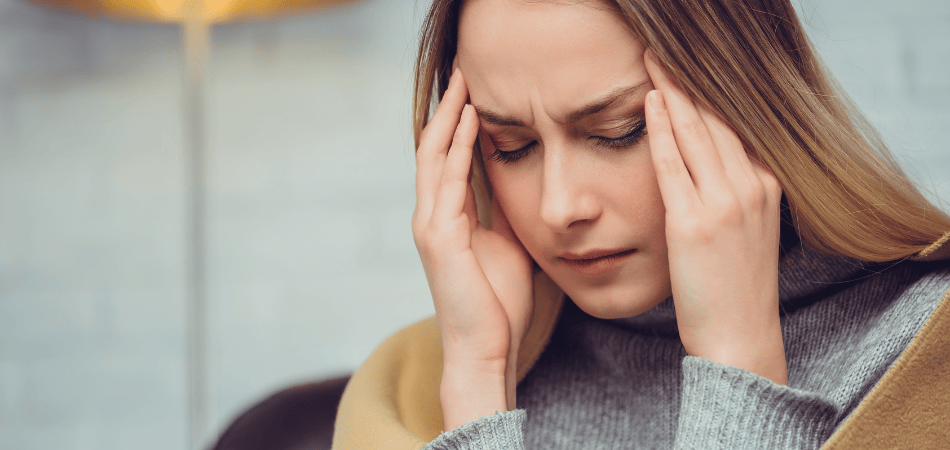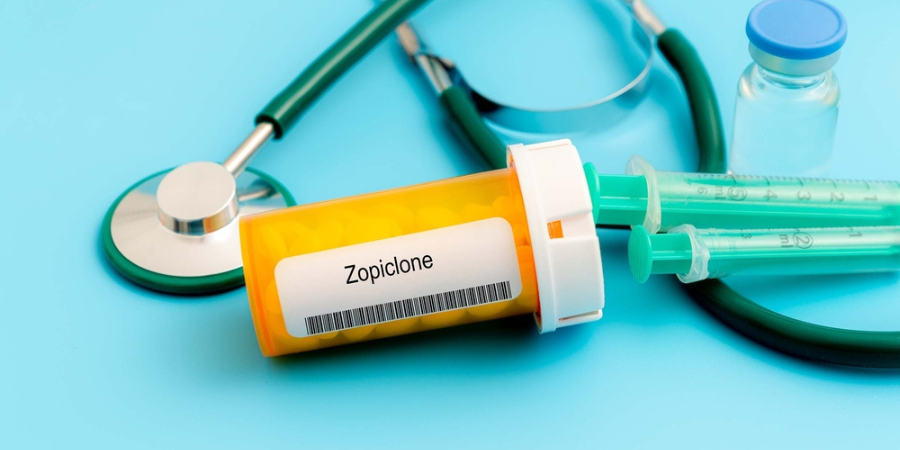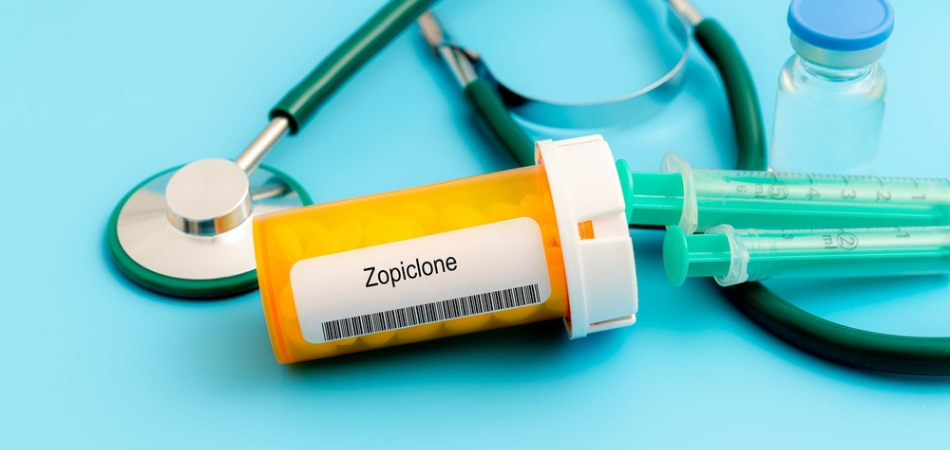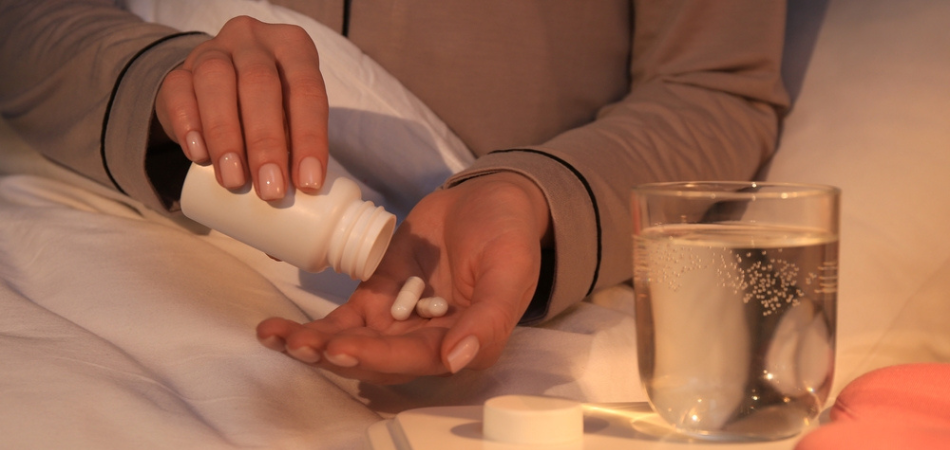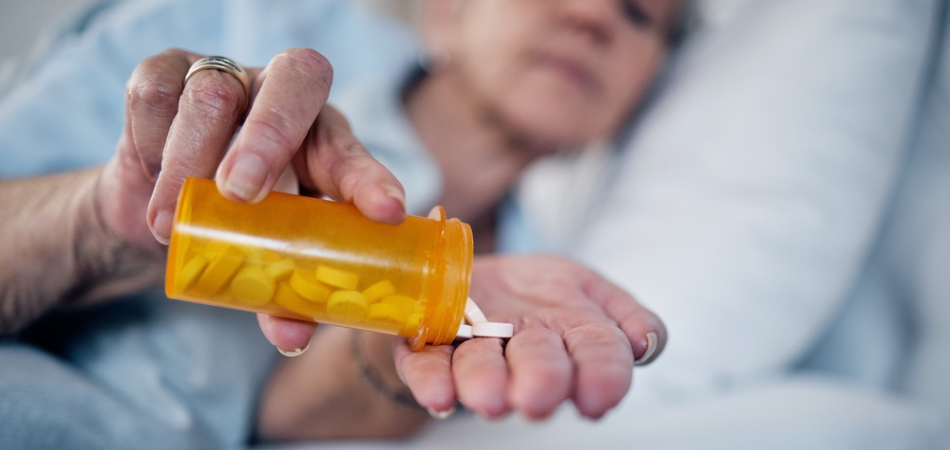
Written by:

Medically Reviewed by:
Last Updated:
March 5th, 2025
Zopiclone Addiction | Symptoms, Effects and Treatment
Insomnia affects millions of people in the UK and one of the most commonly prescribed medications for the condition is zopiclone. Commonly sold under the brand names Zimonvane, Imovane and Dopareel, zopiclone can be an effective, short-term solution for insomnia but also carries a serious risk of abuse and zopiclone addiction.
Like many forms of prescription drug addiction, you may not even realise that you are addicted to zopiclone until it is too late and the drug has completely taken over your life. Whileit can be difficult to overcome, with the right treatment and support, it is possible to break the grip of addiction and get your life back on track.
What is zopiclone?
Zopiclone is a hypnotic sedative commonly prescribed for people with sleep issues such as insomnia. It belongs to the family of non-benzodiazepine sleeping pills which were in part developed because of the addictive nature of benzodiazepines. Despite this intention, however, there are many cases of people developing sleeping pills addiction to non-benzos such as zopiclone.
Zopiclone comes in pill form and is a Class-C substance in the UK that is only available on prescription. Yet, it is often taken recreationally with users seeking a zopiclone high which involves feelings of euphoria and tranquillity. Those who abuse zopiclone may get the drug from friends or family members, by doctor shopping (visiting multiple doctors to get multiple prescriptions) or even purchasing it illegally online or on the black market.
Why is zopiclone addictive?
You can become addicted to zopiclone both as a result of taking the drug on prescription, and when you take it for recreational use. The drug works by increasing GABA activity in the brain which causes a sense of relaxation and tranquillity.
However, part of the reason that zopiclone is addictive is that your body can quickly become tolerant to the effects of zopiclone, meaning that larger doses are needed to get the desired effect. This tolerance can lead to physical dependence on the medication where you need it just to feel okay and to avoid unpleasant zopiclone withdrawal symptoms which arise when you stop taking it.
When you are addicted to zopiclone, you will continue to take it despite the negative consequences and will experience strong cravings for the drug. This can make it very difficult to live a normal, everyday life as you become totally preoccupied with getting and taking the medication.
Who is most at risk of zopiclone addiction?
While the potential for zopiclone addiction is present for anyone who takes the drug, some of the risk factors that can increase your chances of becoming addicted to zopiclone include:
- A family history of addiction
- Taking zopiclone in high doses or for longer than prescribed by your doctor
- Using zopiclone to cope with stress, anxiety or depression
- A history of trauma for which you use zopiclone to cope
- A history of substance abuse
- Easy access to zopiclone
What are the negative health effects of zopiclone addiction?
There are a number of short-term and long-term effects of zopiclone addiction.
Zopiclone side effects short-term use:
- Headaches
- Dizziness
- Drowsiness
- Cognitive impairment
- Increased risk of accidents due to dangerous behaviour
Zopiclone side effects long-term use:
- Impaired memory
- Depression and anxiety
- Liver damage
- Chest pains and heart palpitations
- Nightmares
- Amnesia
- Abdominal pains
- Constipation
- Flu-like symptoms
- Slowed breathing
- Fatal overdose
Other serious potential side effects of long-term use include an increased risk of suicide due to depression or psychotic episodes and “rebound insomnia“, which is when you become tolerant to zopiclone and it stops being effective.
It is because of these side effects that the medication is only prescribed for four weeks at a time with the smallest dose possible.
How does zopiclone addiction affect the rest of your life?
Zopiclone addiction can seriously inhibit your ability to function at the levels necessary to maintain steady employment as you are more likely to miss work on a regular basis, to be frequently late and to make basic errors in your day-to-day work duties. This can have a huge impact on your financial well-being which can be exacerbated by the cost of procuring the drug on the black market.
It can also have serious ramifications for personal relationships, including with partners, children and other family members. These issues can cause further mental and emotional distress which only fuels the addiction further.
Am I addicted to zopiclone?
Before we explain what zopiclone addiction treatment entails, it is important to know whether you are actually addicted to zopiclone and would benefit from treatment. To recognise the signs of zopiclone addiction, ask yourself the following questions:
- Do I continue taking zopiclone even though it has negative consequences on my life?
- Have I taken larger doses of zopiclone than were prescribed or taken the drug for longer than I was supposed to?
- Do I experience strong cravings or zopiclone withdrawal symptoms when I haven’t taken the drug?
- Have I tried to quit zopiclone but been unsuccessful?
- Do I use zopiclone to cope with difficult emotions, stress or anxiety?
- Have I procured zopiclone illegally?
If you answered yes to any of the above questions, it is likely that you are addicted to zopiclone and require professional help.
What does zopiclone addiction treatment involve?
Zopiclone detox
Zopiclone detox is when you stop taking the drug and allow your body to heal and rid itself of any traces of the drug. While the length and severity of zopiclone withdrawal symptoms vary from person to person depending on factors such as how long you have been taking zopiclone and in what quantities, it can be very unpleasant and potentially even fatal.
This is why Primrose Lodge provides inpatient zopiclone detox where our team of medical professionals will give you a full assessment upon admission so that we are able to provide you with a tailored detox plan throughout your stay.
Zopiclone withdrawal timeline
As noted above withdrawal can vary significantly from one user to another but a typical zopiclone withdrawal timeline will look something like this:
1-2 days: A day or so after the last dose of zopiclone you will start feeling anxiety, irritability and occasional muscle spasms. Your mood is likely to be low, and you may start feeling nauseous.
2-5 days: During the main phase of withdrawal you may feel intense nausea and indigestion; extreme restlessness; wildly oscillating moods; insomnia; pronounced sweating; hallucinations; and constant intense cravings for zopiclone.
5-14 days: Withdrawal symptoms will start to fade in intensity after around five days of detoxing from zopiclone; the above symptoms may still occur, though less frequently. Your sleep is likely to remain disrupted; a pronounced lethargy and depression may set in.
After two weeks your zopiclone withdrawal symptoms should have disappeared. If they persist, particularly if they are serious ones like depression, you may be suffering from post-acute withdrawal syndrome (PAWS) which will require ongoing medical support.
Zopiclone rehab
Alongside detox, effective recovery also requires zopiclone rehab during which time you will learn to recognise and understand the underlying causes of your zopiclone addiction and learn the skills you need to overcome it. At Primrose Lodge, we provide inpatient zopiclone rehab where you stay in our centre as a resident for the duration of your treatment. This will allow you to connect with our staff and the other clients in recovery, distance yourself from external distractions and focus on yourself and your recovery.
During your rehabilitation, you will benefit from a variety of evidence-based therapies which are designed to help you work through your underlying issues or prevent relapse. Our zopiclone rehab programme includes:
- One-to-one counselling
- Group therapy
- Cognitive behavioural therapy
- Family therapy
- Art and music therapy
- Yoga
- Meditation
Aftercare
continued recovery after you leave Primrose Lodge. To help with the transition, we provide one year’s free weekly group therapy sessions which will give you:
- A continued source of support during zopiclone recovery
- The opportunity to meet and learn from others on the same journey
- A chance to process and discuss any issues that arise in your post-treatment life
Through this ongoing connection and support, you will never again be left alone to try and cope with your zopiclone addiction.
Tips for preventing zopiclone addiction relapse
In addition to participating fully in your aftercare programme, here are three top tips to help you stay zopiclone-free after leaving rehab:
#1 Avoid high-risk situations
Remind yourself of the potential risks associated with zopiclone use and take steps to avoid them. This could mean avoiding places that you associate with using or people who are still using.
#2 Stay connected
Maintain contact with your support network whether this is friends, family or people you met in rehab. This will help to remind you that you’re not alone in your zopiclone recovery journey and will give you people to lean on during difficult moments.
#3 Practise self-care
Focus on getting enough sleep, eating healthily and practising mindfulness and calming activities such as yoga, meditation or walking if you find yourself getting cravings for zopiclone. You can also try out new healthy hobbies which will prevent boredom and give you the opportunity to meet new people.
How to take the first step
Zopiclone abuse and addiction are incredibly dangerous so it is important you reach out for help as soon as possible. Get in touch with Primrose Lodge today and we can help you begin your journey to recovery.

